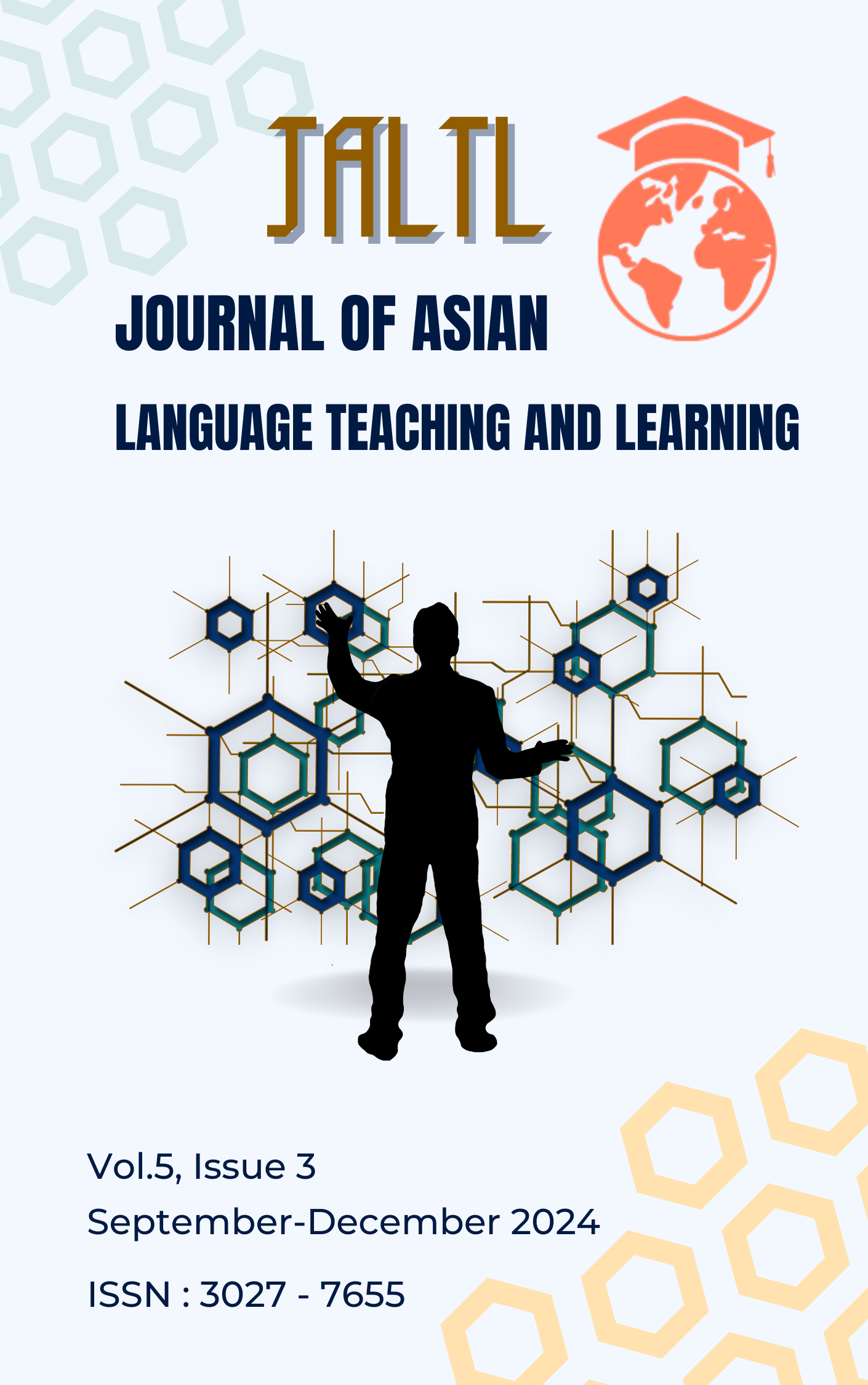An Analytical Examination of the Influence of the English Language as a Lingua Franca on Thailand's Educational, Economic, and Cultural Dynamics in 2024
Main Article Content
Abstract
In the era characterised by globalisation, the English language has emerged as a crucial tool for communication, education, and commerce. In Thailand, the significance of English has grown remarkably, particularly in recent years. As the country continues to navigate the complexities of globalisation, understanding the role of English in various sectors becomes increasingly essential. In 2024, Thailand is expected to witness further developments in English proficiency among its citizens, driven by factors, such as international tourism, economic partnerships, and digital advancements.
As a consequence, this academic article explores the multifaceted importance of English in Thailand, accentuating its implications for tourism, education, businesses, cultures, as well as technology. The academic article is composed of nine sections: (1) an introduction, (2) the roles of English as a Lingua Franca in Thailand in 2024, (3) economic development and globalisation, (4) education and global competitiveness, (5) cultural exchange, (6) international relations, (7) tourism, (8) challenges and future directions, and (9) a conclusion.
In the context of globalisation, English has emerged as a pivotal tool for communication, education, and commerce worldwide, with Thailand experiencing a notable rise in its significance in recent years. As the country faces the challenges and opportunities presented by global interconnectedness, English plays an increasingly vital role in facilitating international interactions across diverse sectors. In 2024, Thailand is poised to witness further enhancements in English proficiency, influenced by factors such as the growth of international tourism, expanding economic partnerships, and advancements in digital technology. These developments underscore the growing importance of English in shaping Thailand's global positioning and fostering a more interconnected society.
Article Details

This work is licensed under a Creative Commons Attribution-NonCommercial-NoDerivatives 4.0 International License.
References
Baker, W. (2009). Intercultural awareness and intercultural communication through English: An investigation of Thai English language users in higher education (Doctoral Dissertation). University of Southampton: Southampton, England.
Chalermpalanupap, T. (2024). Thailand's Strategic Diplomacy in the Global Arena. The Nation.
Chinnawong, P. (2022). Motivating Factors in Learning English among Thai Students. Journal of Language Studies.
Crystal, D. (2008). Two thousand million?. English Today, 24(1), 3-6.
Education Ministry of Thailand. (2023). National Policy on English Language Education. Retrieved from: https://www.moe.go.th/multilingual-education/
Fitzgerald, R., Davis, K. (2023). Customer Satisfaction in Tourism: A Study on Language Barriers. Tourism Management Review.
Khan, A. (2024). Cultural Exchange and English Language Learning in Thailand: A Modern Perspective. Bangkok: Thai University Press.
Kirkpatrick, A. (2022). The Role of English in Southeast Asia: Issues and Challenges. Asian Englishes, 24(2), 123-137.
Ministry of Foreign Affairs. (2024). Annual Report on International Relations and Diplomacy. Bangkok: Ministry of Foreign Affairs.
Pattanapanchai, S. (2023). Standardized Testing and Its Impact on Language Learning in Thailand. Thai Educational Review.
Seidlhofer, B. (2011). Understanding English as a lingua Franca. Oxford: Oxford University Press.
Sirisamran, N. (2024). Technology in Language Education: Opportunities and Challenges in Rural Thailand. Journal of Educational Technology.
Suthipong, A. (2023). The Role of English in ASEAN Diplomacy. Bangkok Post.
Suwankul, T. (2024). English-Medium Instruction in Thai Higher Education: Trends and Challenges. International Journal of Education, 17(3), 75-89.
Suwannakudt, T. (2021). Cultural Influences on Language Learning in Thailand. Southeast Asian Journal of Education.
Thailand Board of Investment. (2023). Foreign Investment Trends in Thailand. Retrieved from: https://shorturl.asia/SQWGx
Todd, W. R. (2006). The myth of the native speaker as a model of English proficiency, KMUTT Journal of Language Education, 8, 1-8.
Tourism Authority of Thailand. (2024). Tourism and Language: A Study on English Proficiency in the Hospitality Sector. Bangkok: Tourism Authority of Thailand.
United Nations Development Programme. (2024). Human Development Report: Language and Development. Retrieved from: https://shorturl.asia/zNVA0
World Bank. (2023). The Economic Impact of English Proficiency in Emerging Markets. Washington, D.C.: World Bank Publications.
World Economic Forum. (2024). Global competitiveness report. Retrieved from: https://www.weforum.org/reports/global-competitiveness-report-2024


